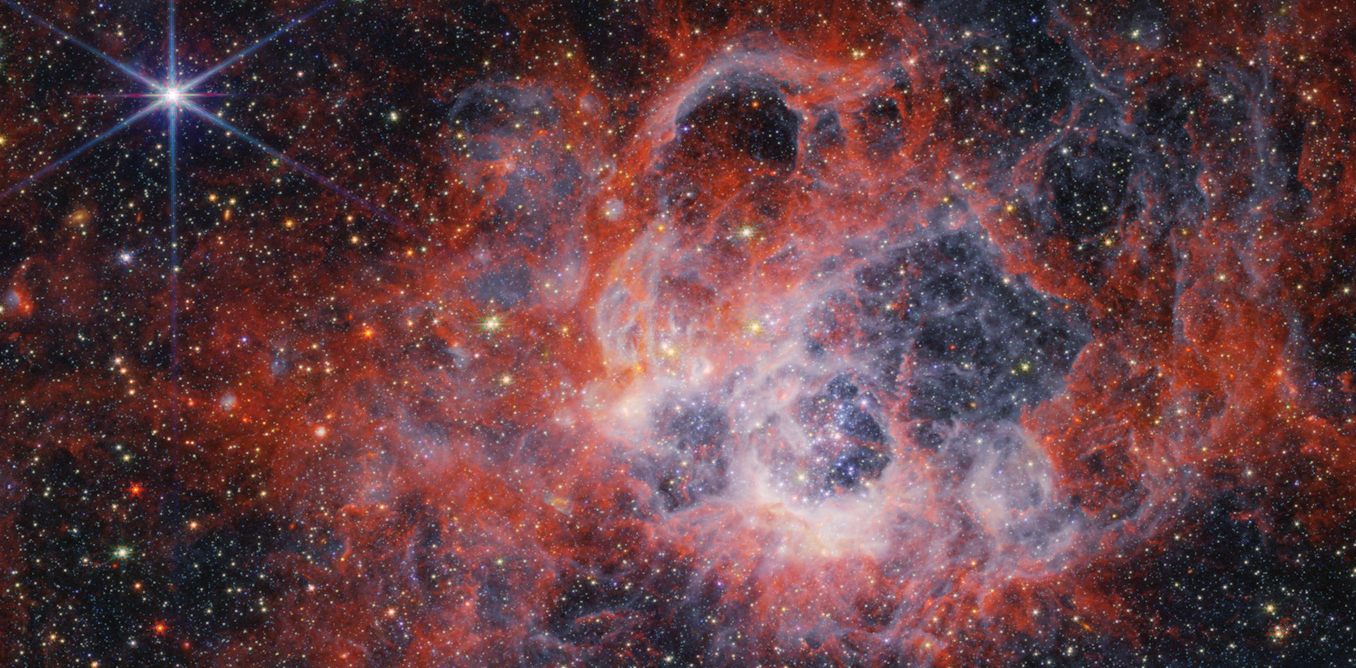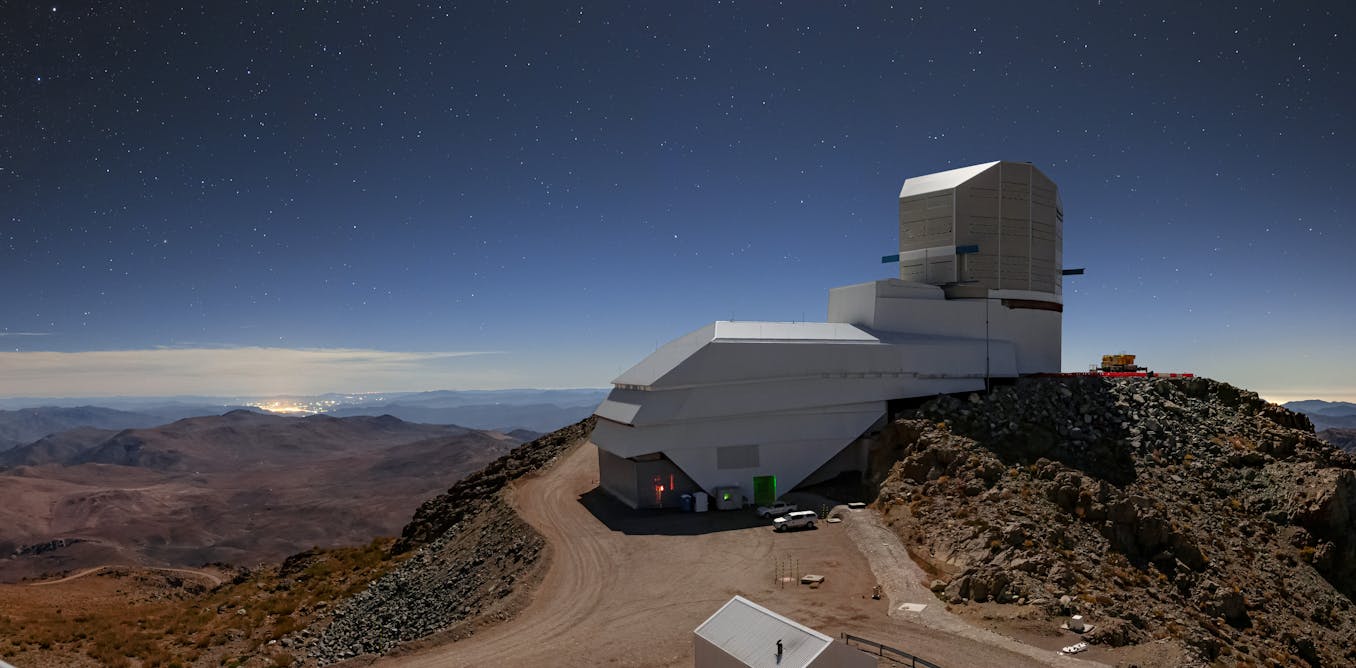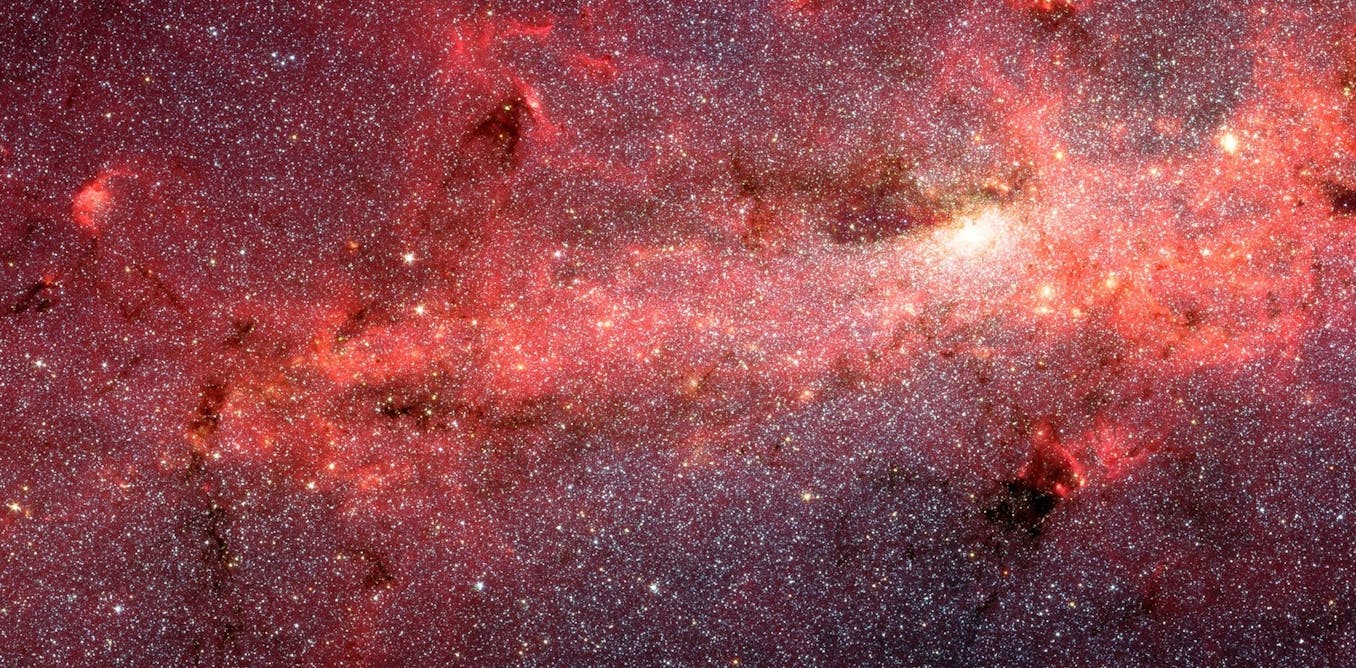The Vera C. Rubin Observatory will help astronomers investigate dark matter, continuing the legacy of its pioneering namesake
Vera C. Rubin’s research into stars in galaxies led to the modern understanding of dark matter.
June 24, 2025 • ~9 min
How do atoms form? A physicist explains where the atoms that make up everything around come from
Almost everything on Earth is made up of atoms, but where do these fundamental building blocks come from?
June 23, 2025 • ~8 min
Astronomy has a major data problem – simulating realistic images of the sky can help train algorithms
To make a truly realistic fake picture of a galaxy, you can model exactly how light particles travel through the atmosphere and telescope to reach its sensor.
June 23, 2025 • ~9 min
Is Mars really red? A physicist explains the planet’s reddish hue and why it looks different to some telescopes
Mars isn’t a bright, fire-engine red, but the iron oxide in its rocks makes it appear redder than other planets, especially from afar.
June 16, 2025 • ~7 min
Still waiting
75 years after Fermi’s paradox, are we any closer to finding extraterrestrial life?
June 10, 2025 • ~6 min
Where is the center of the universe?
As the universe expands, it feels like it must be spreading out from some initial point. But a physicist explains why that’s not how it works. Hint: space-time is involved.
June 10, 2025 • ~8 min
/
133








